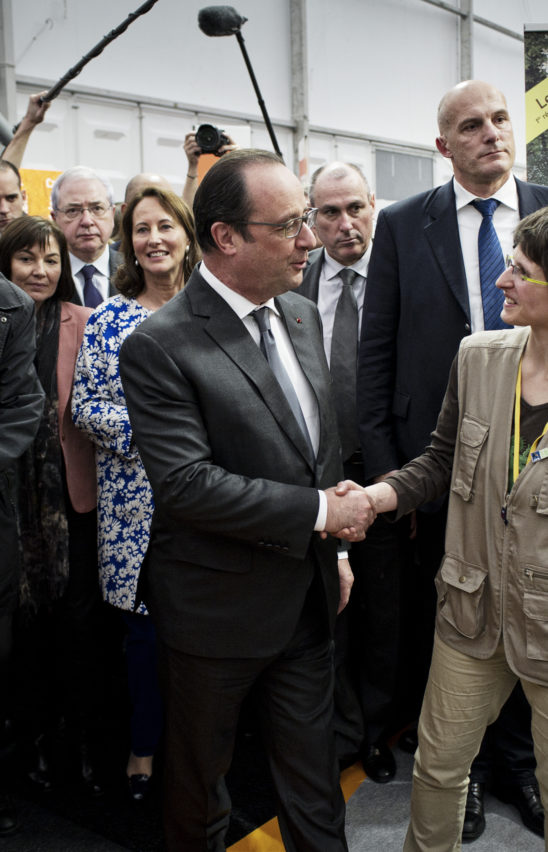
…… the Hollande mystery
In 2012, François Hollande was elected as president partly thanks to a phenomenon of rejection of Nicolas Sarkozy, including by the centrist electorate. However, his campaign communication must be acknowledged as a true success. Ran and executed by Manuel Valls, it perfectly built upon the hostility towards the outgoing Head of State’s personality. It succeeded in creating, amplifying and maintaining a dynamic that led to the victory, despite its competitor’s efforts and progress between the two rounds of election. The anaphora “I President” has become a symbol forever engraved in the history of French presidential elections as Valéry Giscard D’Estaing’s “monopoly on heart” in 1974 or François Mitterrand’s “the man of the past that became the man of liabilities” (passé/passif in French) in 1981.
This state of grace seems to have disappeared since the very election night on the Place de la Bastille podium, when François Hollande’s companion of the time urged him to kiss her on the lips. This famous injunction actually forecast many other setbacks in the presidential communication. The president attempted to adopt the behavior of a “normal man” while occupying a position which, by nature, cannot be normal. In the end, what was beyond normal was the failure of his communication, which led his former advisor Denis Pingaud to name him “the man without communication” (title of the book he dedicated to him).
Without going into details on the most significant chapters of this failure – from the unemployment curve inversion, to the tool box or the Leonarda episode – what we have just experienced since the month of August is the obvious demonstration that François Hollande, as President, has lost its way in communication.
Let us remember
Throughout the Summer, well informed journalists explained that l’Elysée had planned a recapture strategy that should enable the President to easily win the Belle Alliance Populaire primary and thus qualify for the second round of the presidential election. September was meant to assert the international stature of François Hollande with a great speech at the annual conference of Ambassadors and before the UN’s General Assembly.
What happened?
The day before his speech before the Ambassadors, the President urged Emmanuel Macron to choose between his ministerial office and his political movement and gave him 24h to think it through. The news of the resignation of the ex-Deputy Secretary General of the Elysée leaked during the speech of the President. As a result, no one heard about the speech.
The interview with L’Obs on October 12th, entitled unequivocally, “I am ready” was meant to mark a significant milestone in the internal mobilization operation. But as everyone knows, it was published the day before the now famous “A President should not say that” and the readers swarmed on the highlights published by L’Express rather than on the president’ reflections. Outcome: no clippings or commentaries about it. The book’s release date was known for several months. Why, then, choose to publish the interview at the same time? Diversionary tactic? François Hollande, “this President who dreamt of being a journalist” to repeat Catherine Nay’s words, knows the media universe too well to believe that a political analysis interview, could overshadow seven hundred pages of unrestrained confidence.
If there is a constant in his five-year mandate, it is the inconsistency of his communication and his failure. This is particularly ironic, talking about a man who recently stated “One never should let oneself carried away by a particular sentence or another, taken out of context. What matters to me, and will always do, is to restore my action”. Without judging on the consistency of his political action, the inconsistency of his communication is obvious and makes him an unidentified political object whose legitimacy is put into question by his own side.
It is easy to observe, but hardly explainable for a communication expert. It illustrates, at the very least, one of the golden rules of our job and moreover in politics: if there is no good communication without a good strategy, there is no good strategy without a good implementation. Communication is also an art of execution.
